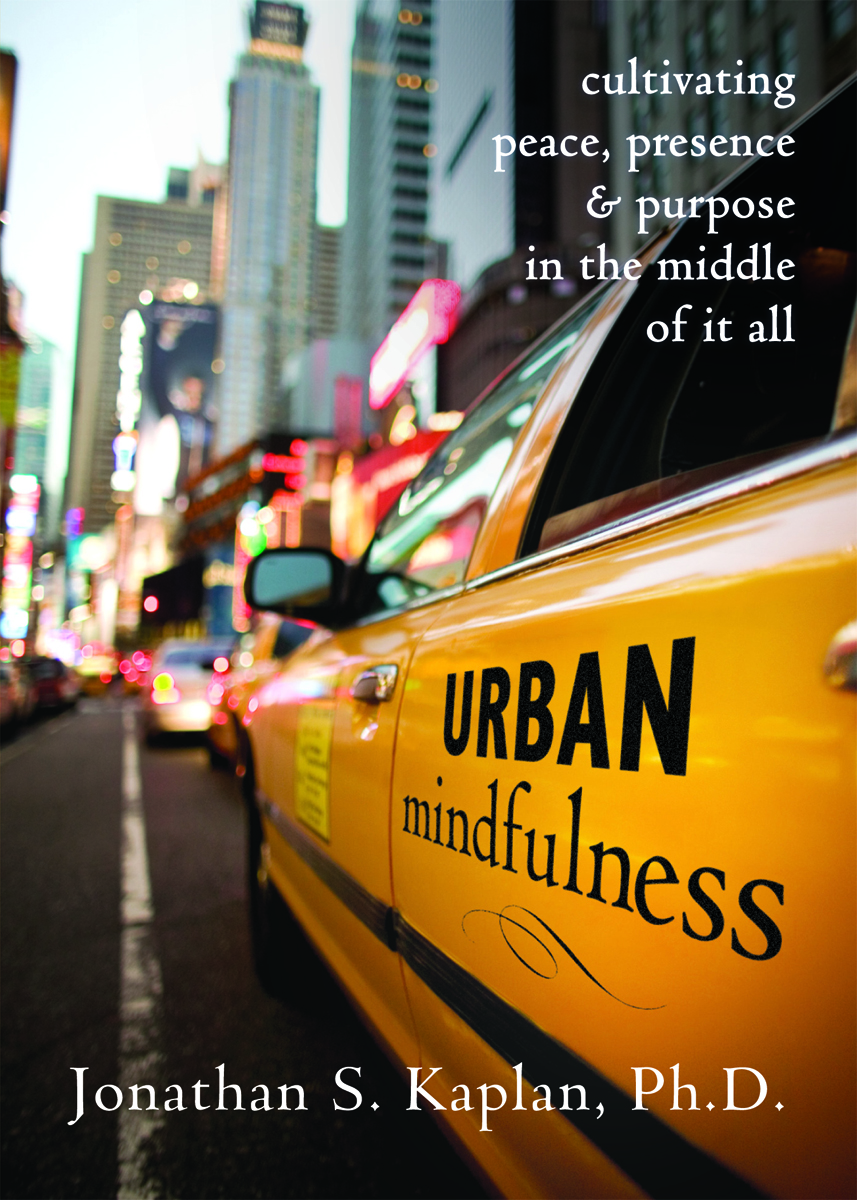Wednesday
Dec102008
Holiday Mindfulness: Tips for Making It Through the Season
 Wednesday, December 10, 2008 at 10:33AM
Wednesday, December 10, 2008 at 10:33AM  By Jonathan Kaplan, Ph.D.
By Jonathan Kaplan, Ph.D.I’ve been feeling pretty shell-shocked lately. There’s a lot happening in my life and the city. Budget problems and economic woes dominate the headlines: MTA is facing a serious budget shortfall, Mayor Bloomberg wants to withhold annual rebate checks for homeowners, and companies are laying off workers daily. The stock market has been going up and down so often that it reminds me of a hyperactive toddler on moon bounce. On top of these stressors, it is also the holiday season.
Last year around this time, I spent a lot of time thinking about holiday cards while embroiled in gift-buying angst. What do I buy for whom? How much should I spend? What’s the “perfect” gift?
This year, I have found that my mind has been dominated by thoughts on limiting expenses and working within a budget. When I see something that looks like it would make a nice present, then “It’s too expensive” quickly comes to mind. It indeed might be “too expensive,” but I haven’t considered it yet in any thoughtful way.
While I might be preoccupied with the economy and presents, others might be distracted by thoughts of spending time with difficult family members or worried about work’s “Secret Santa” exchange. Of course, our holiday-related thoughts aren’t always negative. We might be excited by having a few days of vacation or hosting a joyous celebration with family and friends. Regardless of whether we’re thinking “negative” or “positive” thoughts about the holiday, we’re still stuck in our heads. Thinking, considering, excitedly planning, philosophizing, wondering, worrying--it doesn’t matter. All of the stuff “up there,” can remove us from the world “down here” where we live.
So, what to do? How can we practice mindfulness during the holiday season in the city? Well, here are a few tips that I’ve found to be helpful personally.
Return to your senses for information about your surroundings. Many places have put up holiday ornaments or lights, which are a distinct departure from the norm. Some can be quite pretty, too. It doesn’t have to be something as grand as the tree at Rockefeller Center. Pretty lights and displays can be found all around us. Even the electric menorah at your dry cleaners might be pretty in some ways. Why not take a more serious look? Some restaurants and cafes have seasonal foods. Try a gingerbread muffin, and allow yourself a few moments to revel in its taste. Nice? When you pass a Christmas tree seller on the street, take a few moments to smell the pine. When was the last time the aroma of pine wafted through NYC streets?
Make an effort to spend more time with friends and family either on the phone or in person. Rather than searching stores for presents or trawling the internet, talk with someone who is on your list. Learn more about them and what’s been happening in their life. By being present in such a conversation, you might naturally discover what would be a nice present for him or her. However, having a heart-to-heart chat demonstrates more care and love than an expensive present anyway. Also, the whole point of getting someone a present is to show how much they matter to you. Maybe you can express this sentiment directly through a deep talk or a card. Consider what would matter more to you: a “perfect” present sent from someone who you haven’t been close to lately or more time actually spent with that person. For me, it’s been a relief to realize that I’m rich with friends and family, regardless of the economy. As such, it is more important for us to spend time together rather than spending money on each other.
Continue (or start) your meditation practice. Meditation has been shown scientifically to have substantial health benefits. Often, it can provide a sense of groundedness and peace as well. So, be sure to continue your practice during the holiday season. Or, if you haven’t tried meditation recently (or ever), read some of the UM handouts and give it a try tonight. I’ve also recommended some books in the UM Amazon store, which you might want to consider for yourself or someone you love.
Do something seasonal. There are many events and things to do around the city. You can volunteer at a local relief shelter, visit Santa, or attend a Hanukkah celebration at your local synagogue. Check with TimeOut NYC or re-visit some of organizations that are important to you. Typically, there will be some seasonal offerings. Even Buddhist sanghas appreciate the importance of the holiday season. For example, this weekend, the Shambala Center of NYC is hosting a Winter Solstice celebration for families in celebration of Children’s Day. Take a peek at what’s out there and enjoy!
Be mindful of your breathing. Bring it back to basics: our breath is always here. We can always become aware of our in-breath and out-breath as a way to anchor our mind in the present moment. I particularly like using the breath as a focus of mindfulness because it is omnipresent and inconspicuous. You have to breathe, even if it’s holiday time in the city.



